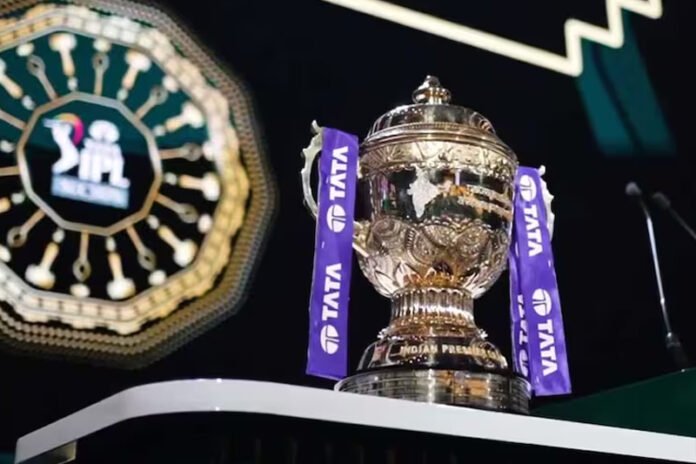The Indian Premier League (IPL) 2025 has been officially suspended indefinitely, as escalating military tensions between India and Pakistan forced the BCCI to make one of its toughest decisions in recent memory. With security concerns mounting and key logistics unraveling, the tournament, widely seen as the crown jewel of global franchise cricket, grinds to an abrupt and uncertain halt.
The tipping point came when a series of disruptions signaled a deeper crisis. First, a scheduled match between Punjab Kings and Mumbai Indians in Dharamsala was moved to Ahmedabad due to the shutdown of Dharamsala and Chandigarh airports, prompted by increased military activity in the northern region. That was followed by a blackout during the Punjab Kings vs Delhi Capitals fixture, initially cited as a power failure, but widely speculated to be a security-related incident. Although the BCCI initially downplayed the severity, citing player confidence, sources close to several overseas camps—especially among Australian and English contingents—hinted at growing unease. The pressure to act became impossible to ignore.
With tensions along the border intensifying and uncertainty clouding travel safety, the BCCI convened an emergency meeting and, after consultations with security agencies, state governments, and franchise representatives, announced the suspension of IPL 2025. The decision affects the final 12 league matches and the playoff stages, including the much-anticipated final that was to be held in Kolkata.
Notably, this move comes just days after the Pakistan Cricket Board (PCB) decided to relocate the remaining matches of the Pakistan Super League (PSL) to the UAE due to similar security concerns, following a drone scare near the Rawalpindi Stadium. That move now seems prophetic, serving as a possible blueprint for how the IPL might seek continuity later this year, if geopolitical tensions de-escalate.
Before the suspension was finalized, the BCCI had actively explored alternatives. Among the strongest contenders was the possibility of relocating the tournament to the southern region of India, which has remained largely unaffected by the ongoing tensions. Venues such as Chennai’s MA Chidambaram Stadium, Bengaluru’s M. Chinnaswamy Stadium, Hyderabad’s Rajiv Gandhi International Stadium, and Thiruvananthapuram’s Greenfield Stadium were being considered for hosting the remaining fixtures. These stadiums offer top-class infrastructure, proven IPL hosting experience, and relatively secure environments, which could have allowed the tournament to continue in a bio-secure, consolidated format.
However, with the situation escalating rapidly across northern and western India—and growing apprehension even in metropolitan centers—the domestic relocation plan was ultimately shelved in favour of a full suspension. While southern India offered a temporary safe haven, the BCCI reportedly concluded that it was too risky to proceed even there without full confidence from security forces and International players.
The UAE remains the most likely overseas alternative should the league resume later in the year. It has a well-established relationship with the IPL, having hosted the tournament in 2014 and 2020. Broadcasters are familiar with the logistics, franchises are accustomed to the conditions, and the Emirates Cricket Board has proven it can handle the scale. Given that the PSL has already moved there, it’s a practical, politically neutral option that ensures both safety and commercial continuity.
Beyond logistics, however, the BCCI’s decision reflects a deeper understanding of its responsibility to players, fans, and the cricketing world. Cricket has long served as a balm during national strife, but no sport can exist in a vacuum when the safety of individuals is at stake. If Pakistan could act swiftly to relocate its flagship tournament, India’s board has now shown similar prudence, prioritizing lives and long-term credibility over short-term gains.
What happens next remains uncertain. The BCCI may look to create a condensed window later in the year to resume the tournament, perhaps after assessing the political climate. Alternatively, they may explore splitting the remaining fixtures into a standalone mini-tournament or extending the 2025–26 domestic calendar. Commercial losses will be substantial, but the board is expected to invoke insurance clauses and broadcaster renegotiations to cushion the financial blow.
For now, though, IPL 2025 is paused indefinitely. Fans across the globe are left disappointed, but also understanding. The cricketing fraternity stands at a delicate crossroads, where security and sport are deeply intertwined. What the BCCI decides next could well define the future playbook for cricket leagues navigating geopolitical volatility in the years to come.



